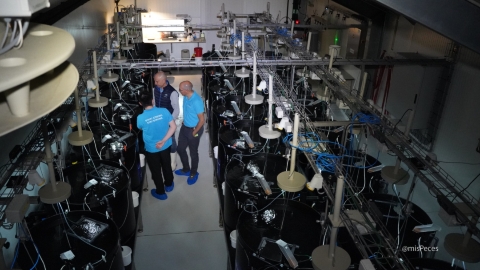
For local communities to grant aquaculture companies a social licence to operate, it is essential that they perceive a range of benefits that build trust and acceptance. The social licence is not a formal permit, but rather a community acceptance based on social, environmental and economic perceptions. It is granted when the community in question sees that the benefits of the operation outweigh any potential risks or negative impacts.
Various studies have shown that local communities consider it important that the activity is managed in a way that minimises its impact on the environment. This includes controlling water pollution, managing waste appropriately and conserving marine ecosystems. It is also important that the public in the areas where aquaculture farms are located perceive the sector as being environmentally responsible and working to improve the health of the ecosystem.
The economic benefits of the activity must be tangible, such as local economic growth and contribution to the economy. It is also important that these benefits are shared fairly, both at local, regional and state level. If communities feel that they are not getting enough of the benefits, or that the benefits are concentrated among certain groups, they may withdraw their support.
Trust in the stakeholders involved, such as aquaculture companies and government authorities, is key to granting social licence. There must be a perception that decisions related to aquaculture are made transparently and fairly. The industry and government should involve the community in the decision-making process, listen to their concerns and adapt their practices where necessary. A lack of participation and fair processes can lead to mistrust and opposition to aquaculture activities.
Communities also consider the historical and social context in which aquaculture is being developed. For example, if the sector has a history of environmental or social conflict, it may be more difficult for the community to grant or maintain social licence. In addition, the cultural context and people's connection to the place can also influence how they perceive the impacts of aquaculture.
In summary, for a local community to grant its social licence to aquaculture, it is essential that they perceive that the industry operates in a sustainable, fair and transparent manner, that the benefits are well distributed, and that the stakeholders involved are trustworthy. These perceptions need to be continually reinforced to maintain long-term acceptance, which requires time and effort to maintain this level of trust.


